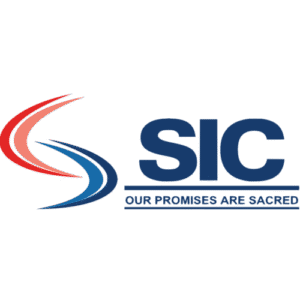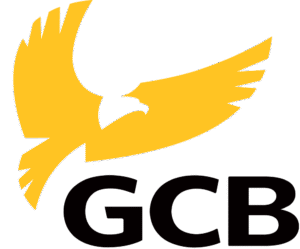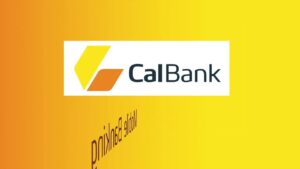Top 10 Best Performing Stocks in Ghana 2025
The Ghana Stock Exchange (GSE) has seen strong growth this year. In this guide, we break down the Top 10 Best Performing Stocks in Ghana in 2025, why they are rising, and what every beginner investor should know before buying shares.
Watch the Video
What to Check Before Investing in a Stock
Before jumping into any company, here are the most important things every investor must consider:
-
Know the Company
Understand what the company does, its sector, products, and how it generates income. For example, oil companies sell petroleum products, while telecom companies like MTN sell data and airtime. -
Track Record
Look at how the company has performed in past years. A business with consistent growth is more likely to perform well in the future. -
Dividends
Companies that pay dividends regularly often have strong financials and commitment to shareholders. Be cautious of companies that only pay dividends occasionally to attract investors. -
Risk Awareness
Stock prices go up and down. Think long-term (5–10 years) rather than chasing quick profits. -
Liquidity
Invest in companies where you can easily sell your shares when needed. If nobody wants to buy your shares, you may struggle to cash out
🥇 1. Clydestone Ghana Ltd—+466.7%
Profit on ₵1,000: ₵4,660

What they do: Clydestone Ghana Ltd is an IT and fintech solutions company. They specialize in electronic payment platforms, systems integration, and providing digital financial services infrastructure across Ghana and parts of Africa.
Why it rose:
- Increased reliance on digital transactions and fintech growth in Ghana.
- More partnerships with banks, telcos, and financial institutions.
- Started from a low base price—small changes in demand created massive percentage returns.
Risks:
- Competition from other fintech players and global solutions.
- Heavy dependence on tech infrastructure and regulations.
- Stock volatility due to relatively small market capitalization.
Takeaway for beginners:
Clydestone shows how tech companies can deliver explosive growth when digital adoption rises. But it’s high-risk — only suitable for small, calculated allocations in your portfolio.
🥈 2. SIC Insurance—+288%
Profit on ₵1,000: ₵2,880

What they do: SIC is one of Ghana’s oldest and largest insurance companies, offering motor, property, health, and life insurance products.
Why it rose:
- Increased awareness of insurance among Ghanaians.
- Recovery from past financial struggles, leading to renewed investor confidence.
- Growth in corporate and retail insurance uptake.
Risks:
- Insurance claims from accidents or disasters could hit profits.
- Regulatory compliance and solvency requirements.
- Competition from other insurance providers.
Takeaway for beginners:
Insurance stocks like SIC offer steady, long-term growth. If you want diversification beyond banks and telecoms, SIC is a good entry point.
🥉 3. Access Bank Ghana—+214.2%
Profit on ₵1,000: ₵2,142

What they do: A commercial bank in Ghana, part of Access Bank Plc, serving retail, corporate, and SME customers.
Why it rose:
- Strong backing from its Nigerian parent bank.
- Expansion in digital and mobile banking services.
- Improved loan book quality and better financial performance.
Risks:
- Exposure to bad loans if the economy slows.
- Competition in the banking sector.
- Interest rate fluctuations can impact profitability.
Takeaway for beginners:
Access Bank is a growth banking stock with regional support. Suitable for investors who want exposure to West Africa’s banking sector.
4. Ecobank Transnational (ETI)—+193.5%
Profit on ₵1,000: ₵1,935

What they do: ETI is a pan-African banking group, operating in over 30 African countries.
Why it rose:
- Revenue from multiple regions, not just Ghana.
- Growth in digital banking and cross-border payments.
- Strong investor confidence in pan-African banking stability.
Risks:
- Multi-country operations mean exposure to different regulations and risks.
- Currency fluctuations across Africa.
- Political instability in certain regions.
Takeaway for beginners:
ETI offers diversification in African markets beyond Ghana. Great for long-term investors who believe in Africa’s regional banking growth.
5. TotalEnergies Ghana—+182.2%
Profit on ₵1,000: ₵1,822

What they do: A subsidiary of TotalEnergies, dealing in fuel distribution, lubricants, and energy services.
Why it rose:
- Strong fuel demand in Ghana.
- Continued expansion of service stations nationwide.
- Strong brand trust and global backing.
Risks:
- Oil price volatility affects margins.
- Government regulation of fuel prices.
- Transition to renewable energy could disrupt long-term demand.
Takeaway for beginners:
TotalEnergies Ghana is a blue-chip stock with reliable demand. It’s safer compared to speculative stocks, but growth may be slower.
6. GCB Bank (Ghana Commercial Bank)—+135%
Profit on ₵1,000: ₵1,350

What they do: One of Ghana’s largest indigenous banks, serving individuals, SMEs, and corporates.
Why it rose:
- Strong expansion in digital banking and ATMs.
- Improved profitability after financial reforms.
- Solid customer base and market share.
Risks:
- Vulnerable to local economic shocks.
- Exposure to government securities.
- Interest rate risks.
Takeaway for beginners:
GCB is a stable, well-known brand. Good for conservative investors who prefer steady returns with lower risk.
7. CalBank—+97.1%
Profit on ₵1,000: ₵971

What they do: A Ghanaian commercial bank focusing on SMEs, retail, and corporate banking.
Why it rose:
- Growth in SME and retail loan portfolios.
- Recovery after tough banking reforms.
- Improved investor confidence.
Risks:
- Smaller than GCB and Access Bank, so growth depends on competition handling.
- Loan defaults could reduce profitability.
Takeaway for beginners:
CalBank is a mid-tier growth bank. It’s promising but slightly riskier than bigger players like GCB.
8. MTN Ghana—+80.8%
Profit on ₵1,000: ₵808

What they do: Ghana’s largest telecom operator, offering mobile services, data, and MTN Mobile Money (MoMo).
Why it rose:
- Explosion in data consumption and smartphone penetration.
- Mobile money dominance with millions of active users.
- Constant expansion in digital services.
Risks:
- Heavy regulation of mobile money services.
- Infrastructure costs for network expansion.
- Competition from Vodafone and AirtelTigo.
Takeaway for beginners:
MTN Ghana is a household name and safe bet. If you’re new to investing, MTN is one of the easiest and most stable stocks to start with.
9. GOIL (Ghana Oil Company Ltd)

What they do: GOIL is Ghana’s leading oil marketing & petroleum product distribution company. It handles petroleum, diesel, gasoline, lubricants, bitumen, and related energy products. Reuters+3African Markets + 3 Stock Analysis + 3
Why it might rise (or show attractive returns):
- Given Ghana’s dependence on petroleum, GOIL sits in a critical infrastructure sector.
- They may have expanded downstream services (fuel stations, lubricants) or improved operational efficiency.
- Also, GOIL has branched into electronic payments and money transfers — diversifying beyond pure fuel. StockAnalysis
- As oil prices rise, margins on fuel and related services often increase, benefiting marketing firms.
Risks:
- Fuel price volatility—if global oil prices fall, margins can shrink.
- Regulatory risk—changes in fuel subsidies, taxes, or import controls can directly impact profitability.
- Operational costs—logistics, storage, import costs, and supply chain issues.
- Diversification risk—newer lines like payments may not immediately offset any weakness in core fuel business.
- Takeaway for beginners:
GOIL is a classic energy/fuel play with the benefit of diversification via payments. For someone building a Ghana-focused portfolio, GOIL gives exposure to both the energy sector and expanding fintech adjacent services. Not as speculative as small-cap tech, but with more growth upside than pure utility stocks.
10. Standard Chartered Bank Ghana—+21.8%
Profit on ₵1,000: ₵218

What they do: A subsidiary of Standard Chartered Plc, offering international-standard banking in Ghana.
Why it rose:
- Stable financial performance.
- Strong governance and global best practices.
- Regular dividend payments attract investors.
Risks:
- Growth is slower compared to local competitors.
- Economic downturns affect lending business.
Takeaway for beginners:
Standard Chartered is a safe, dividend-paying stock. Perfect for conservative investors who prefer stability over fast growth.
✅ Final Word:
This list shows how the Ghana Stock Exchange in 2025 has rewarded investors across different industries: tech (Clydestone), insurance (SIC), banking, energy, telecom, and consumer goods. Beginners should balance stable, dividend-paying companies with a small allocation to high-growth stocks like Clydestone for maximum benefit.